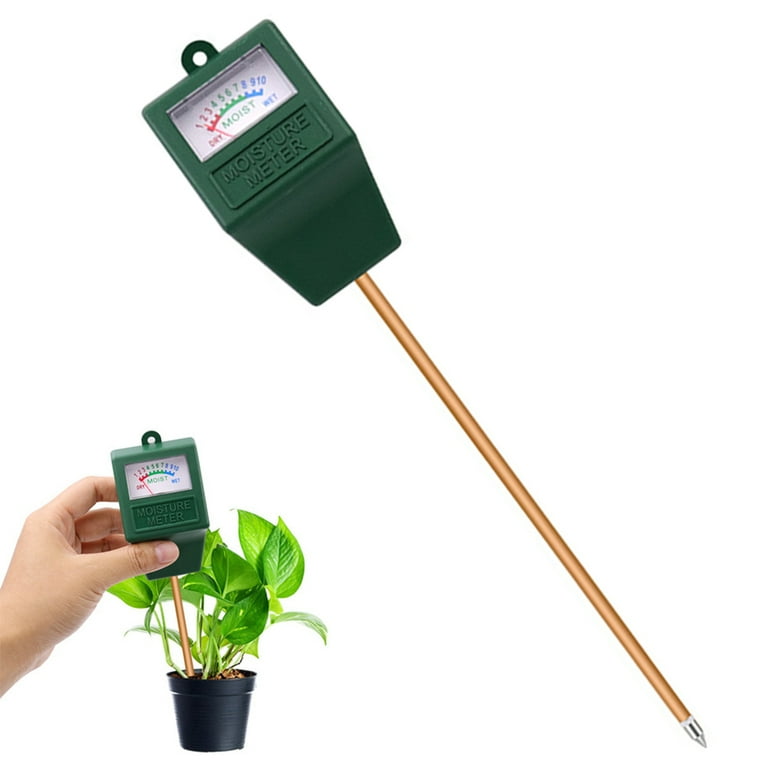The Ultimate Guide to Selecting the Right Moisture Meter for Your Needs
The Ultimate Guide to Selecting the Right Moisture Meter for Your Needs
Blog Article
The Ultimate Overview to Moisture Meters: A Comprehensive Overview and How They Can Save You Money
In the realm of structure maintenance, construction, and numerous sectors, the importance of properly measuring wetness degrees can not be overemphasized. Wetness meters serve as crucial devices in finding and monitoring moisture content in materials, aiding in avoiding expensive problems and making sure the quality of items. Understanding the nuances of various sorts of moisture meters, their applications, and the prospective cost-saving advantages they provide can be a game-changer for companies and specialists alike. Finding how these tools can not only improve processes yet likewise contribute to financial savings is a journey worth embarking on.
Kinds Of Wetness Meters
Numerous kinds of wetness meters are available for various applications in numerous industries. One typical kind is the pin-type dampness meter, which gauges the electrical resistance in between two pins placed right into a product. This type is ideal for wood, drywall, and other building products. Pinless wetness meters, on the various other hand, usage electro-magnetic sensing unit plates to check a larger location without causing damage to the product's surface. Moisture Meter. These meters are excellent for promptly evaluating dampness levels in big areas such as walls and floorings.

Infrared dampness meters gauge the thermal residential properties of a material to establish its wetness web content non-invasively, making them useful for applications where pin or pinless meters may not be suitable. Comprehending the different kinds of wetness meters offered can help industries choose the most appropriate tool for their specific dampness dimension needs.

Benefits of Utilizing Moisture Meters
Wetness meters offer indispensable benefits in properly evaluating and checking wetness degrees in diverse materials and environments (Moisture Meter). Among the primary benefits of utilizing dampness meters is the prevention of potential damages brought on by excess wetness. By identifying and addressing high wetness levels beforehand, wetness meters help to stop mold and mildew growth, rot, and structural damages in buildings, conserving both money and time on repairs. In addition, dampness meters aid in guaranteeing the quality of materials during building or manufacturing processes. By precisely measuring moisture material, these tools aid maintain the integrity of timber, drywall, concrete, and other materials, lowering the risk of failings or issues.
Furthermore, utilizing wetness meters can lead to raised energy efficiency. By determining locations with high wetness levels, such as leakages or bad insulation, changes can be made to improve power conservation and reduce energy prices. In agricultural settings, moisture meters play a critical function in optimizing plant returns by allowing farmers to keep track of dirt dampness levels and make informed irrigation decisions. Generally, the advantages of utilizing moisture meters span throughout numerous industries, giving economical solutions and advertising better top quality control practices.
Exactly How to Choose the Right Wetness Meter
When picking a wetness meter, it's crucial to guarantee that the meter is appropriate for the particular material you will be testing. Various products have differing electrical properties that can influence moisture analyses, so choosing a meter designed for your material is important for precise results. By meticulously examining these variables, you can pick a moisture meter that meets your requirements and provides precise dampness dimensions for your projects.
Proper Techniques for Dampness Meter Use

Expense Financial Savings Through Dampness Meter Applications
How can the calculated utilization of moisture meters lead to significant price savings across numerous sectors? Moisture meters play an important duty in price savings by protecting against potential damages and ensuring quality assurance in various markets. In the farming industry, wetness meters aid in determining the ideal time for harvesting crops, protecting against over-drying or excess moisture that can affect the final item's top quality. This specific monitoring aids farmers avoid unneeded losses and optimize their return.
Similarly, in building, moisture meters assist prevent pricey problems by discovering moisture levels in structure materials, such as wood or concrete, which can cause architectural concerns otherwise dealt with promptly. By determining problem areas early on, professionals can take restorative measures to stay clear of substantial repair work or replacements, eventually conserving money and straight from the source time.
In addition, in the food processing sector, wetness meters are crucial for keeping an eye on product top quality and making certain compliance with safety and security guidelines. By precisely gauging wetness material in Recommended Site food, producers can prevent putridity, keep freshness, and minimize waste, causing substantial cost financial savings. Generally, the calculated application of moisture meters is a beneficial financial investment that can bring about considerable expense decreases and boosted efficiency throughout different markets.
Conclusion
In final thought, moisture meters are beneficial devices for detecting and gauging dampness levels in various materials. By using the right dampness meter and complying with proper methods, customers can efficiently protect against costly problems created by excess wetness.
Wetness meters serve as crucial tools in identifying and keeping track of moisture web content in materials, assisting in avoiding pricey problems and ensuring the top quality of items. Infrared wetness meters gauge the thermal residential properties of a product to establish its wetness web content non-invasively, making them beneficial for applications where pin or pinless meters may not be suitable.Dampness meters offer vital benefits in properly assessing and monitoring wetness degrees in varied materials and environments. In farming settings, moisture meters play a crucial function in optimizing plant yields by making it possible for farmers to keep an eye on soil dampness levels and make notified watering decisions.In final thought, dampness meters are valuable tools for gauging and identifying moisture levels in various materials.
Report this page